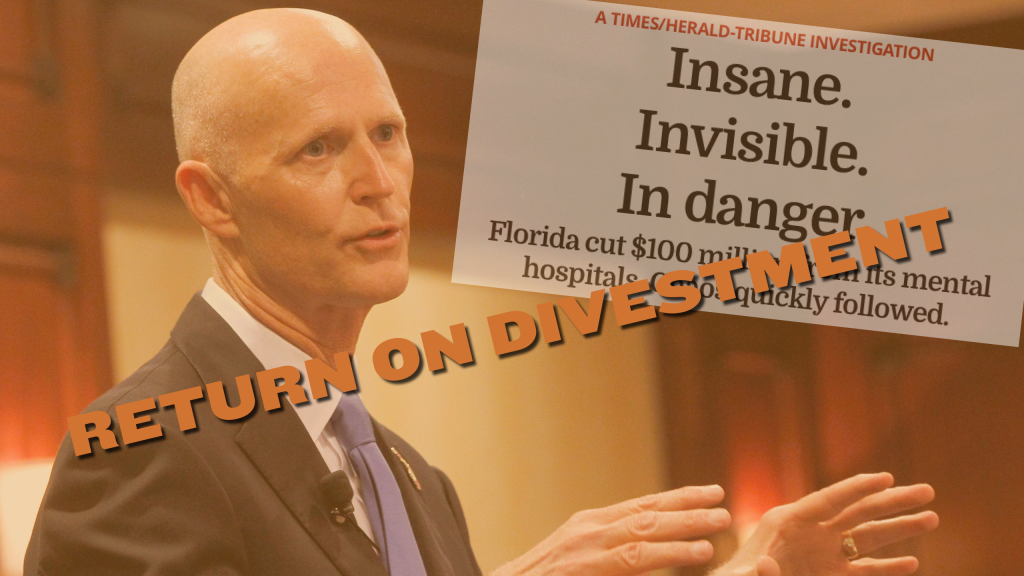 In his proposed state budget for 2016-17, Florida Governor Rick Scott has called for another round of significant tax cuts, this time on the order of a billion dollars. He proposes these cuts at the expense of funding for essential state services that have the potential to improve the lives of countless Floridians as well as Florida’s fiscal and economic bottom lines. A prime example of an area where the Governor and Legislature have starved an essential service system to the breaking point is in the area of mental health.
In his proposed state budget for 2016-17, Florida Governor Rick Scott has called for another round of significant tax cuts, this time on the order of a billion dollars. He proposes these cuts at the expense of funding for essential state services that have the potential to improve the lives of countless Floridians as well as Florida’s fiscal and economic bottom lines. A prime example of an area where the Governor and Legislature have starved an essential service system to the breaking point is in the area of mental health.
An estimated one in six Floridians are experiencing mental illness, and as a group they are disproportionately likely to lack health coverage or even appropriate and timely access to services.1 In particular, only those facing severe and persistent mental illnesses can be served through Florida’s state- funded mental health system. Individuals with moderate or
emerging behavioral health needs are ineligible to receive services, despite the fact that prevention and early intervention services can be provided at a small fraction of what would otherwise be the eventual cost to families, taxpayers and businesses.
Even the relatively few who are eligible to receive services ultimately fall into the numerous gaps in Florida’s publicly funded mental health system. For many, the consequences include belated crisis management in the most expensive settings, counter-productive and avoidable cycling between jails, hospitals and the streets, and thwarted opportunities for recovery. Progress has been made in some communities around the state, but that progress is often dependent on local political will, and is neither uniform nor sufficient to address the vast need.
Examples underscoring the nature and extent of Florida’s unmet mental health need include, but are no means limited to, the following:
To read the full report by the Florida Center for Fiscal and Economic Policy click on this link.

